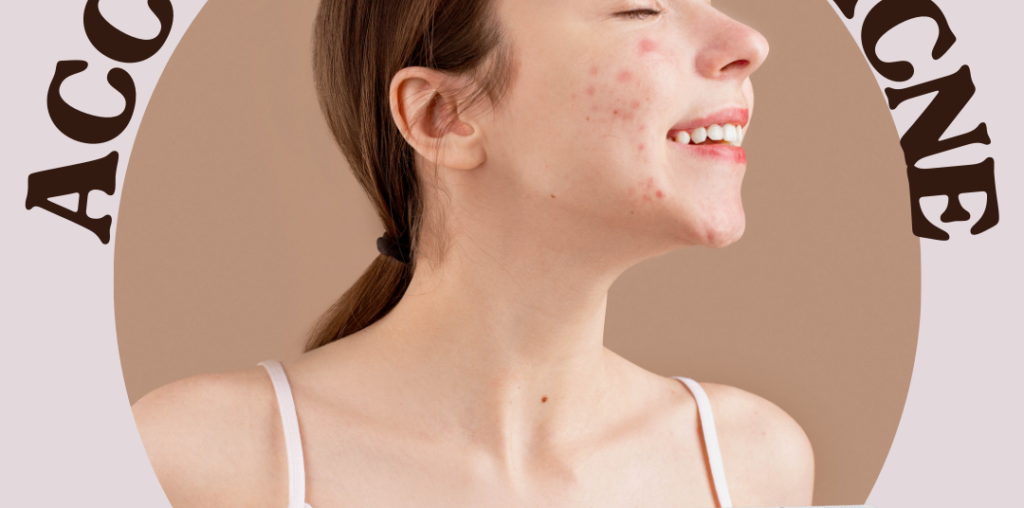Acne, a common skin condition affecting millions worldwide, can range from mild to severe. While some cases are manageable with topical treatments and over-the-counter medications, others require a more aggressive approach. Enter Accutane, a widely prescribed medication for severe acne. But does Accutane actually cure acne? To answer this, we need to explore what Accutane is, how it works, its effectiveness, and its long-term impact on skin health.
What is Accutane?
Accutane is the brand name for isotretinoin 20mg, a powerful derivative of vitamin A. It is primarily used to treat severe, cystic, or recalcitrant acne that doesn’t respond to other treatments. Approved by the FDA in 1982, Accutane has become a go-to solution for dermatologists dealing with difficult acne cases.
The medication works by addressing four major causes of acne:
- Excess oil (sebum) production.
- Clogged hair follicles.
- Bacterial growth (Propionibacterium acnes).
- Inflammation.
By targeting these causes simultaneously, Accutane has proven to be highly effective in significantly reducing or eliminating acne.
How Does Accutane Work?
Accutane works in several ways to treat acne at its source:
- Reducing Sebum Production:
One of the primary contributors to acne is excessive oil production by sebaceous glands. Accutane shrinks these glands, reducing oil output, and making it harder for bacteria to thrive. - Unclogging Pores:
Accutane helps to normalize skin cell turnover, preventing dead skin cells from clogging pores. This minimizes the formation of blackheads and whiteheads. - Fighting Inflammation:
Accutane has anti-inflammatory properties that reduce redness and swelling associated with severe acne. - Targeting Bacteria:
By altering the skin environment, Accutane creates conditions that are less favorable for acne-causing bacteria to grow.
Does Accutane Cure Acne Permanently?
The short answer is: It depends.
Many people experience long-term remission of acne after completing a course of Accutane. Clinical studies show that about 80% of patients achieve clear or significantly improved skin after one treatment cycle, which typically lasts 4-6 months. For some, the results are permanent.
However, a smaller percentage of individuals may experience acne relapse after treatment. Factors that influence the permanence of results include:
- Severity of Acne: Individuals with milder cases of acne are more likely to see permanent results. Severe, cystic acne may require additional courses of treatment.
- Age and Hormonal Changes: Teenagers and young adults may relapse due to ongoing hormonal fluctuations.
- Lifestyle and Skin Care: Proper skin care and avoiding acne triggers, such as certain diets or products, can enhance Accutane’s long-term benefits.
Effectiveness of Accutane
Accutane is considered one of the most effective treatments for severe acne. Here’s why:
- High Success Rate:
Studies indicate that over 80% of patients achieve lasting results after one course. - Prevents Scarring:
By treating acne at its source, Accutane can reduce the risk of permanent scarring. - Works When Other Treatments Fail:
For individuals who don’t respond to antibiotics, topical treatments, or hormonal therapies, Accutane often proves to be the ultimate solution.
Potential Side Effects
While Accutane is highly effective, it comes with potential side effects that need careful consideration:
- Dryness: Skin, lips, and eyes may become excessively dry during treatment.
- Sensitivity: Increased sensitivity to sunlight and potential skin irritation.
- Mood Changes: Rare cases of mood swings, depression, or anxiety have been reported.
- Liver Function and Cholesterol Levels: Regular blood tests are required to monitor liver function and lipid levels during treatment.
- Birth Defects: Accutane is highly teratogenic, meaning it can cause severe birth defects if taken during pregnancy. Women must use effective contraception while on the medication.
Dermatologists carefully evaluate patients before prescribing Accutane and provide guidance to minimize side effects.
Who is a Good Candidate for Accutane?
Accutane is typically reserved for individuals with:
- Severe, cystic acne.
- Acne that has not responded to other treatments.
- Acne causing emotional distress or impacting quality of life.
Before starting Accutane, a dermatologist will evaluate your medical history, conduct necessary tests, and discuss potential risks and benefits.
Accutane and Relapse
For some, acne may return after completing a course of Accutane. Relapse rates are higher among individuals with:
- Severe acne.
- Hormonal imbalances, such as polycystic ovary syndrome (PCOS).
- Younger age at the time of treatment.
When relapse occurs, dermatologists may recommend a second course of Accutane or alternative treatments like hormonal therapy or laser treatments.
Accutane vs. Other Treatments
Accutane stands out from other acne treatments due to its ability to tackle all major causes of acne simultaneously. While treatments like antibiotics or topical retinoids may work well for mild to moderate cases, Accutane offers a comprehensive solution for severe acne. You can also visit dose pharmacy to get more information about Accutane.
However, it’s not without its drawbacks. The need for strict monitoring and potential side effects means it’s not suitable for everyone. Alternative treatments like hormonal therapy, chemical peels, or blue light therapy may be better suited for individuals with less severe acne or specific medical conditions.
Tips for Success with Accutane
If you’re considering or currently using Accutane, here are some tips to maximize its effectiveness:
- Follow Your Dermatologist’s Instructions:
Take the prescribed dose and attend all follow-up appointments. - Hydrate and Moisturize:
Use a gentle cleanser and a rich, non-comedogenic moisturizer to combat dryness. - Protect Your Skin:
Always wear sunscreen and avoid prolonged sun exposure, as Accutane increases sensitivity to UV rays. - Avoid Harsh Products:
Steer clear of exfoliants, strong acids, or abrasive scrubs during treatment. - Be Patient:
Accutane can take several weeks to show noticeable results. Stick with the treatment plan for the full course.
The Psychological Impact of Clear Skin
Acne is not just a physical condition; it can take a toll on mental health, causing low self-esteem, anxiety, and depression. For many, Accutane offers more than clear skin—it provides a confidence boost and improved quality of life.
That said, patients should remain vigilant about their mental health during treatment. Any changes in mood should be discussed with a healthcare provider immediately.
So, does Accutane actually cure acne? For most individuals, the answer is yes—Accutane offers a long-term or permanent solution to severe acne, especially when other treatments have failed. However, it’s not a one-size-fits-all solution. Factors such as the severity of acne, age, and lifestyle can influence outcomes.
With its transformative results, Accutane has become a life-changing treatment for countless individuals. If you’re struggling with persistent or severe acne, consult a dermatologist to determine if Accutane is the right option for you.




